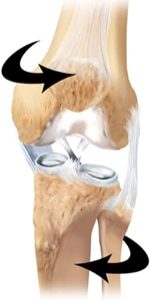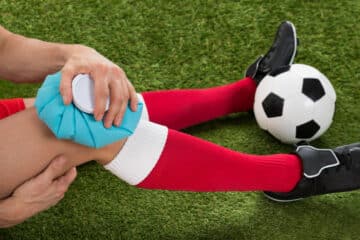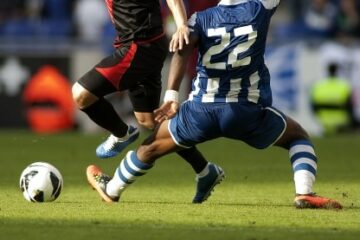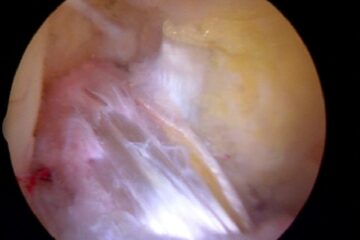
Terrell Thomas of the NY Giants is at risk for missing another season as word spreads of a new injury to his reconstructed knee. Mr. Thomas has been diagnosed with a partial ACL tear.
 The ACL or Anterior Cruciate Ligament is one of the four major ligaments which holds our knee together. This video shows the anatomy of the ACL and the other relevant structures in the knee. Most people injure their ACL from a pivoting or twisting injury, and not from direct contact.
The ACL or Anterior Cruciate Ligament is one of the four major ligaments which holds our knee together. This video shows the anatomy of the ACL and the other relevant structures in the knee. Most people injure their ACL from a pivoting or twisting injury, and not from direct contact.
The ACL enables our knee to remain stable with activities or sports requiring pivoting turning and twisting. Without the ACL, whether it is a complete ACL tear or a partial ACL tear, the knee may become unstable and it will give out when you try to pivot or twist.
Terrell Thomas has a partial tear, but it is a partial tear of a previously reconstructed ligament. That’s not the same as a partial tear of your natural ACL.
Many patients with a partial ACL tear will not require surgery — because rehabilitation enables them to recover enough stability that their knee does not feel loose. Partial ACL tears can be described as functional or non-functional. What do I mean Simply put, it means that certain partial ACL tears will not affect the stability or strength of your knee, but some may. If you have a partial tear and note that the knee feels loose or unstable, then you possess a non-functional tear. If you do not complain of instability or giving was then you likely have a functional partial tear.
Remember… we treat patients and not MRI findings. That means that your complaints, desires, goals and individual needs will frequently determine whether or not a partial ACL tear requires surgery or not.
Some patients, despite the fact that the ACL tear is only partial, will complain of buckling, instability and giving way. They may not want to curb their activities and will, therefore, be a candidate to consider an ACL reconstruction.
If you do consider surgery for partial ACL tears, you may be able to find a surgeon who can perform an ACL augmentation or partial reconstruction. An augmentation or partial reconstruction leaves the normal part of the ACL alone and only substitutes for or replaces the torn portion of your partial tear.
That will not be the case for Terrell Thomas. Because this is a partial tear of a previously reconstructed knee… he may go on to require a formal ACL reconstruction of the entire ligament.
You can read much more on partial ACL tears or complete ACL tears if so you desire!
Time will tell… we wish him well!













